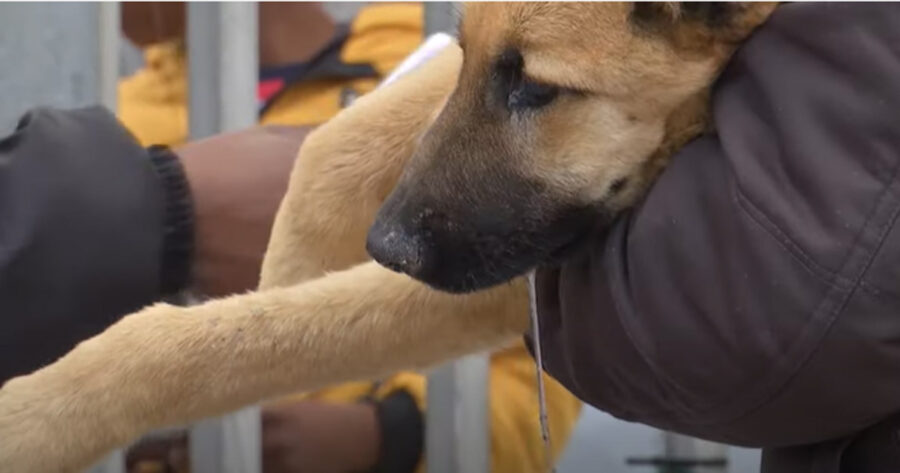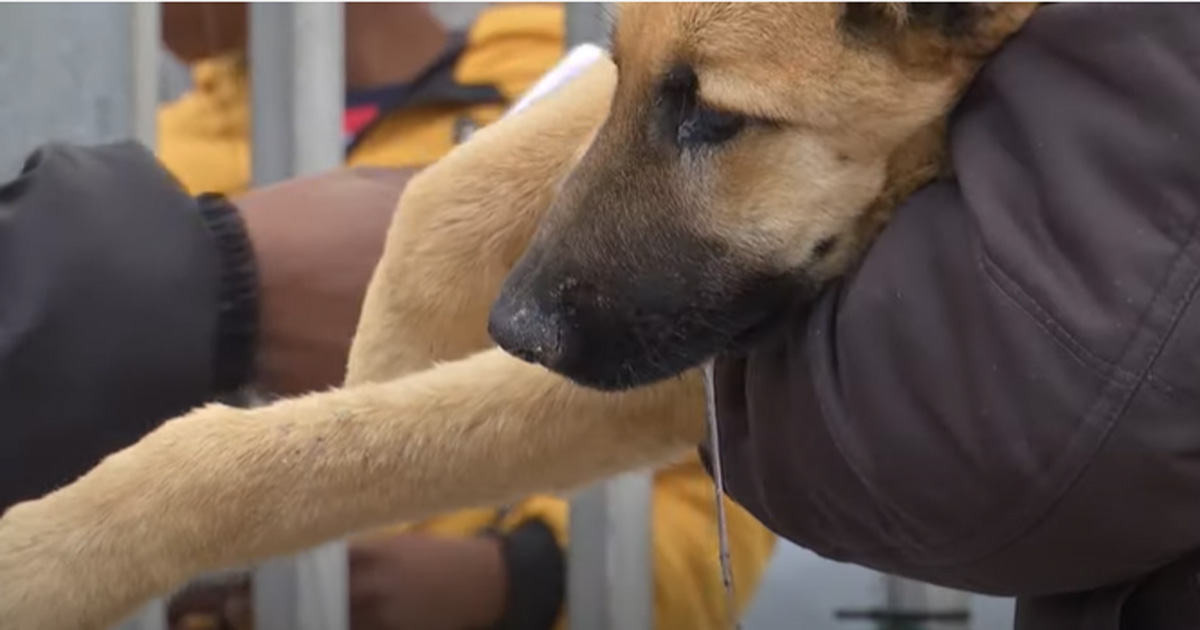
Khayelitsha Veterinarians Speak Out About Dangerous Rabies Cases
Two rabies cases have been identified at the Mdzananda Animal Clinic in Khayeitsha, Cape Town. The last report of rabies in the Western Cape was in 1994. On 11 August a community member asked the clinic to collect her pet as she suspected it had a bone stuck in its throat. The dog had been […]

Two rabies cases have been identified at the Mdzananda Animal Clinic in Khayeitsha, Cape Town. The last report of rabies in the Western Cape was in 1994.
On 11 August a community member asked the clinic to collect her pet as she suspected it had a bone stuck in its throat. The dog had been vomiting for two days, appeared weak and was passing a yellow stool. Priffy, a medium sized, one-year-old male dog was collected and appeared subdued and drooling.
Dr Isel Esterhuyse, the veterinarian at the Mdzananda Animal Clinic, proceeded with caution as the symptoms were suspicious. She examined Priffy’s throat for the suspected bone, but none was found. A distemper test was done but the result was negative.
The next day Piffy’s behaviour changed from subdued to aggressive. Dr Brian Bergman and Dr Isel Esterhuyse suspected rabies based on the symptoms. Being a highly infection and fatal virus, the owner was consulted and euthanasia was consented to. There is currently no cure for rabies. The body was immediately taken to the state veterinary pathology laboratories in Stellenbosch where the dog tested positive for rabies. Dr Esterhuyse says:
“When the dog arrived, we immediately thought the symptoms looked strange. As a precaution we handled the dog with a catch pole and everyone wore double gloves. We placed him into isolation and by the next morning his behaviour had changed drastically to being extremely aggressive. We decided to euthanise and have the body tested for rabies.”
On 16 August the second case presented at the clinic. A client arrived with a male dog hypersalivating and circling. When approached the dog became very disorientated and aggressive. The immediate assessment by Dr Brian Bergman concluded that this case too was a very suspicious case of rabies. The decision was made to euthanise and the body was transferred to the state laboratory. The dog tested positive for rabies.

The clinic’s Community Engagement Officer was deployed to do a site inspection of both the premises and to interview the pet owners to investigate where the rabies infections occurred. To date, the origin has not been found.
“We immediately called SA MAST, the other animal welfare organisation in Khayelitsha, to inform them of the cases and to be on the look-out for others,” says Sr Heidi May, Operations Manager at Mdzananda Animal Clinic. “We held a meeting with our staff to put new procedures in place on how to handle future rabies situations if they are presented. A meeting was held with the Department of Agriculture, Environmental Health Department, City of Cape Town and SA MAST to outline a plan for proceeding.”
With immediate effect, a combined, rigorous vaccine campaign started on Monday 23rd August.
Two more cases were admitted to the clinic thereafter presenting rabies symptoms. Both were euthanised and sent to the laboratory for rabies testing.
All pet owners urged to have pets vaccinated against rabies
“We urge all pet owners to have their pets vaccinated against rabies,” says Marcelle du Plessis, Fundraising and Communications Manager. “On the 28th of September is world Rabies Day. Apart from our current rabies vaccination campaign, we will host a further mass vaccination day on this day.
“We ask members of the public to support us by sponsoring a vaccination at R50. Rabies vaccinations are supplied to us free of charge by the state vet. The R50 will cover gloves, syringes and needles as well as a 5-in-1 vaccine covering other illnesses such as parvo and distemper.”
To sponsor a vaccination:
Donate to Mdzananda Animal Clinic, Standard Bank, Account number: 075595710, Branch: Rondebosch, Branch Code: 025009, Savings account, Reference: Rabies +Your Name. For more information contact info@mdzananda.co.za.
What is Rabies?
Rabies is a deadly virus spread to people from the saliva of infected animals, usually through an animal bite but can also transmit through saliva coming in to contact with your lips, eyes or any exposed cuts on your body. The virus can be transmitted to other animals and humans. Animals most likely to spread rabies include dogs, bats, coyotes, foxes, skunks and raccoons. Symptoms include fever, difficulty swallowing, excessive drooling, staggering, seizures and aggression. There is no specific treatment for rabies. Once symptoms appear it’s nearly always fatal. A vaccine can prevent infection.
